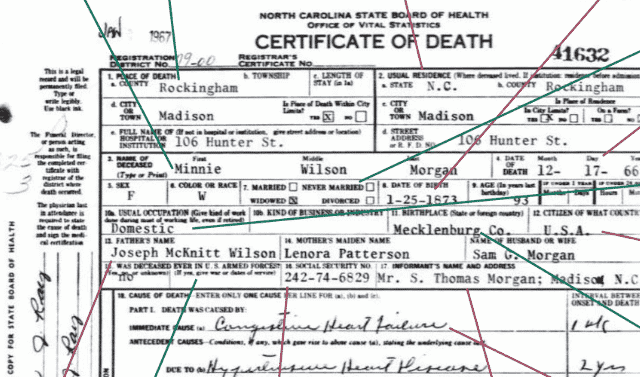Sign up for the Family Tree Newsletter Plus, you’ll receive our 10 Essential Genealogy Research Forms PDF as a special thank you!
Get Your Free Genealogy Forms
"*" indicates required fields
Q. How can I find information about a relative who died at sea?
A. You typically can find basic information about people who died at sea en route to the United States on the same passenger lists that recorded living passengers. Most Customs Passenger Lists, used from 1820 to about 1891, included a separate column for recording deaths at sea; otherwise, these would be written at the end of the passenger list. Passengers who died en route were usually “buried” at sea, though sometimes (especially if the death occurred near the end of a voyage) bodies were kept on board and interred in a cemetery at the port of entry. In that case, you could find a gravestone and burial record.
Arrivals from about 1891 through the mid-1950s were recorded on Immigration Passenger Lists, separate from the customs process. In the 20th century, a “Record of Aliens Held for Special Inquiry” might be used to record shipboard deaths and appended to the ship’s passenger list. Or a deceased passenger’s name might be annotated on the list, with details written at the end of the list. You can search passengers for US ports online at subscription site Ancestry.com.
Ships were so much faster in the 20th century that bodies no longer had to be buried at sea, so you’re more likely to find graves for these deceased. A family might even have had the body transported by train to a final resting place apart from the port of entry.
As states began to require birth and death registration, they too included records of deaths on ships that arrived in their ports. So, someone who died en route to Baltimore, for example, might be found recorded in death records at Maryland’s state archives.
If the death occurred on a British-registered ship after the start of civil registration (July 1837 in England and Wales, January 1855 in Scotland, January 1864 in Ireland), a record had to be sent to the appropriate General Register Office (GRO) depending on the nationality or place of residence of the deceased’s father. Records related to foreigners were, from 1875, sent to the GRO for England and Wales. Each GRO maintains a Register of Marine Deaths with a separate index; most of these indexes are now online through sites such as the subscription site FindMyPast.co.uk.
From the January 2012 issue of Family Tree Magazine
More great genealogy resources from Family Tree Magazine:
ADVERTISEMENT




